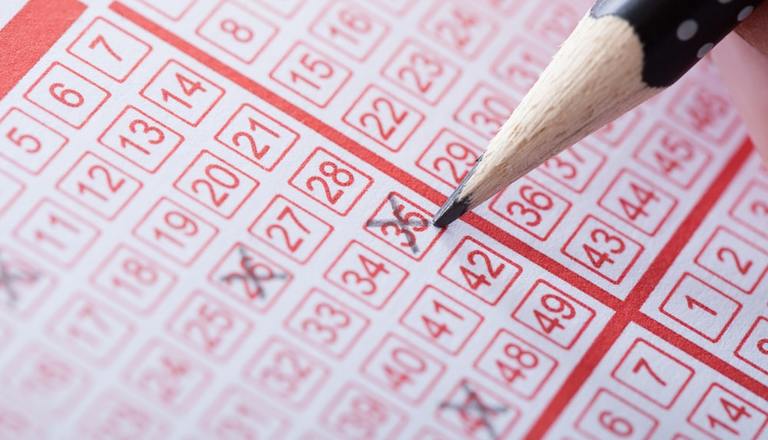
The relationship between high consumer prices and lottery play is extremely complex. On the surface, it might seem that rising prices could discourage lottery participation due to increased financial strain on consumers. Conversely, the economic pressures from high consumer prices might lead individuals to seek out the lottery as a potential escape or financial remedy. One begets the next begets the first.
The effects of inflation
High consumer prices, or better known as inflation, mean that the cost of goods and services rises, impacting individuals' purchasing power. Inflation can stem from various sources, including increased production costs, supply chain disruptions, or heightened demand for products. As prices climb, consumers might experience a squeeze on their budgets, reducing their disposable income and altering their spending behaviours.
In periods of economic hardship, such as those marked by high consumer prices, the lottery often becomes a beacon of hope for many individuals. The notion of winning a life-changing amount of money can be particularly alluring when people are struggling financially. Studies have shown that in times of economic distress, people may turn to the lottery out of desperation to improve their financial situation. A key factor here is the perceived value of lottery tickets. Compared to other forms of gambling or financial investments, lottery tickets are relatively inexpensive. This affordability makes them accessible even for those facing economic hardship. The low cost of a lottery ticket, combined with the potential for a large payout, can be a tempting proposition for individuals looking for financial relief.
Financial stress
Psychological factors also play a significant role in how people approach the lottery. During times of financial stress, the lottery might represent a form of escapism. The fantasy of winning can provide psychological relief from the pressures of daily life. This "hope factor" can drive people to purchase lottery tickets despite their financial constraints. Essentially, when consumer prices are high and financial stress is prevalent, the hope of winning a jackpot can become more appealing as a coping mechanism.
Empirical data on lottery participation during times of economic stress supports the notion that high consumer prices can lead to increased lottery play. For instance, during the 2008 financial crisis, when many people were struggling with economic downturns, there was a noticeable uptick in lottery ticket sales. This trend suggests that as economic conditions worsen, people may be more inclined to spend on lottery tickets in the hopes of financial salvation. Similarly, during periods of inflation, such as the 1970s and early 1980s, there was an observable increase in lottery ticket sales. This correlation suggests that as the cost of living rises, people might spend a larger proportion of their income on the lottery, seeking a chance to alleviate their financial woes.
Income levels can also play a crucial role in understanding lottery participation trends. Lower-income individuals are often found to spend a higher percentage of their income on lottery tickets compared to higher-income groups. During times of high consumer prices, individuals in lower-income brackets might be more tempted to buy lottery tickets as a way to potentially escape their financial difficulties.
Research indicates that the lottery can be regressive, meaning that it disproportionately affects those with lower incomes. When consumer prices rise, the relative cost of lottery tickets remains constant, but the financial strain on lower-income households becomes more acute. This demographic is more likely to spend a larger portion of their income on lottery tickets as a form of investment in their future, despite the low probability of ever winning.
Lottery operators often rely on lottery revenues to fund various public programs, including education and infrastructure. In times of high consumer prices, lotteries may see increased ticket sales. Higher ticket sales can boost revenue, providing necessary funds for charities. On the other hand, this increase in sales can also reflect the financial desperation of individuals who are struggling to make ends meet.
Regulator policies regarding lottery advertising and accessibility can also influence lottery play. In times of economic hardship, more aggressive marketing and promotional campaigns might encourage people to spend more on lottery tickets. Lotteries may benefit on the increased ticket sales, potentially increasing the financial difficulties faced by those most in need.
While there is evidence suggesting that high consumer prices can lead to increased lottery play, for some individuals, rising costs might lead to a more cautious approach to lottery spending. In these cases, people might prioritize essential expenses and reduce spending on non-essential items, including lottery tickets.
Financial education and awareness campaigns can also impact lottery behaviour. As people become more informed about the low odds of winning and the potential financial pitfalls of frequent lottery play, they might choose to reduce the amount of money they spend on lottery tickets.
So yes, high consumers prices can and influence lottery play, both increasing and decreasing a player’s participation. As with many financial statistics, the effects of high consumer prices on lottery play are a complex mixture of various factors influencing human behaviour and financial decisions.
